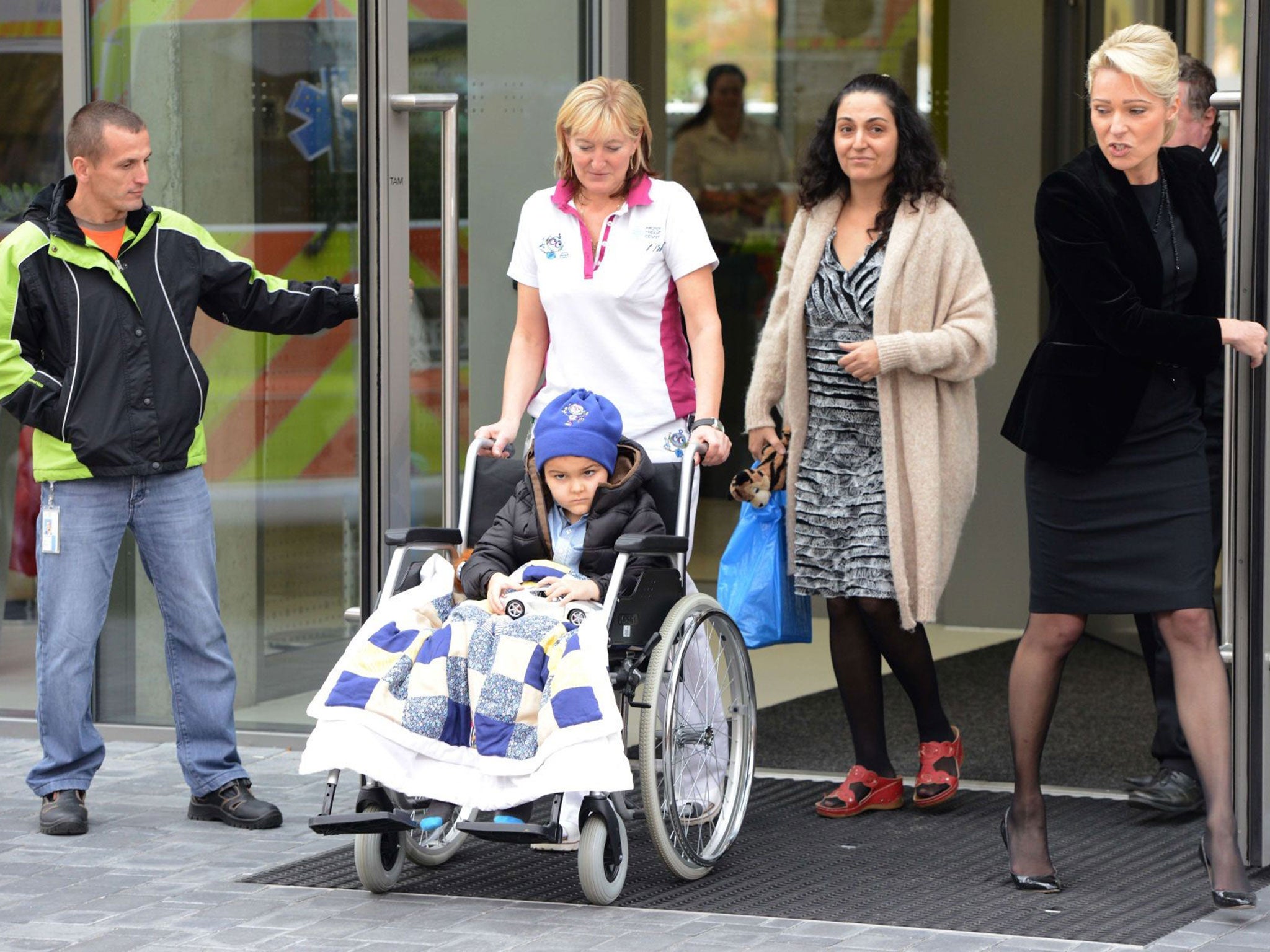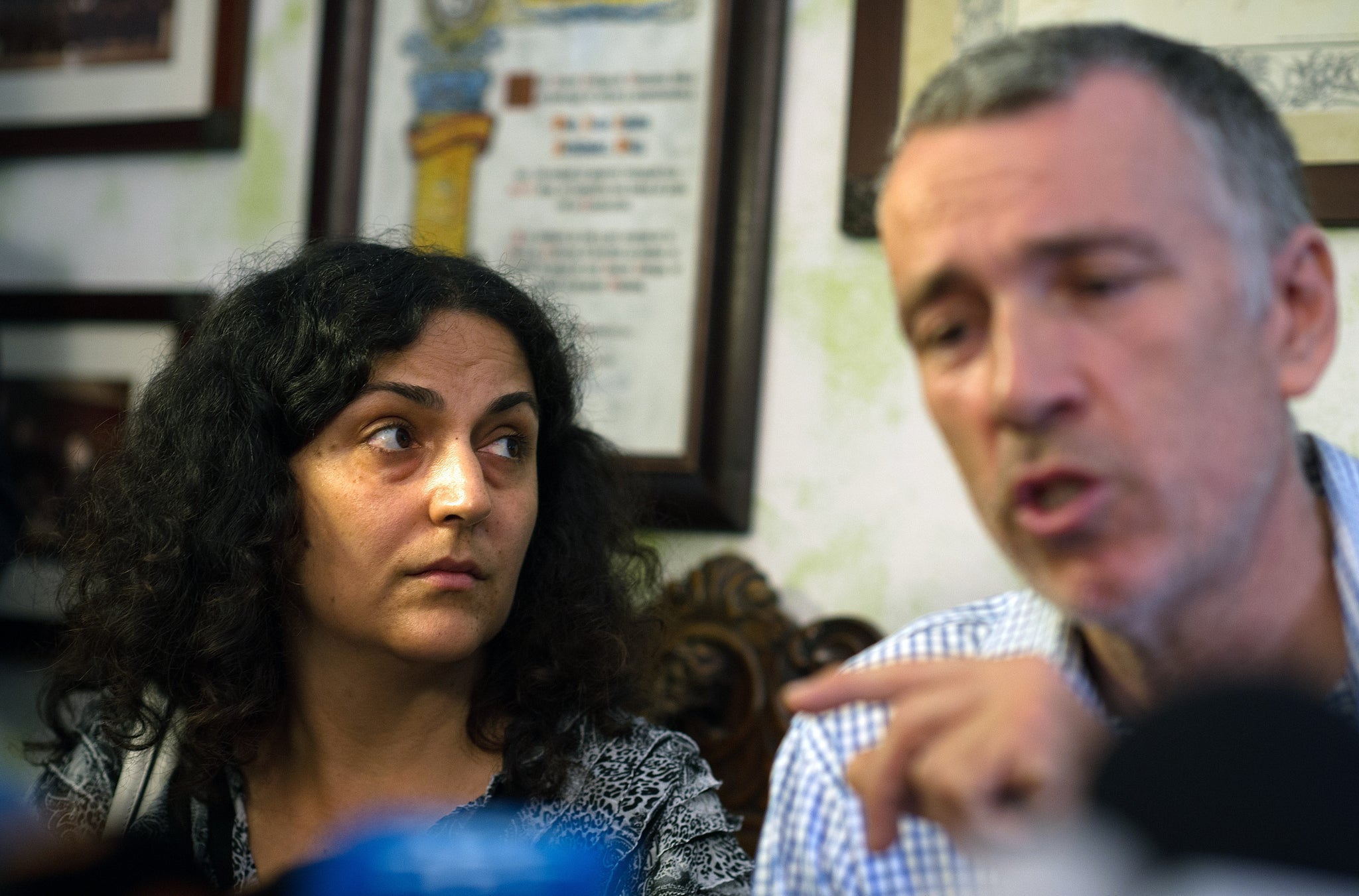Ashya King leaves proton beam therapy clinic after 'responding well' to treatment
His parents sparked a police search after taking him out of hospital

Your support helps us to tell the story
From reproductive rights to climate change to Big Tech, The Independent is on the ground when the story is developing. Whether it's investigating the financials of Elon Musk's pro-Trump PAC or producing our latest documentary, 'The A Word', which shines a light on the American women fighting for reproductive rights, we know how important it is to parse out the facts from the messaging.
At such a critical moment in US history, we need reporters on the ground. Your donation allows us to keep sending journalists to speak to both sides of the story.
The Independent is trusted by Americans across the entire political spectrum. And unlike many other quality news outlets, we choose not to lock Americans out of our reporting and analysis with paywalls. We believe quality journalism should be available to everyone, paid for by those who can afford it.
Your support makes all the difference.Ashya King left hospital today after finishing his course of proton beam therapy in Prague, almost two months after his parents took him out of Britain in a desperate bid for the treatment.
Doctors at the specialist centre said the five-year-old boy had responded well but his recovery from brain cancer is far from over.
His parents took him out of Southampton General Hospital in August without medical consent, sparking a Europe-wide police search.
Doctors had alerted police, fearing Ashya’s life was in danger without proper medical care, but Brett and Naghmeh King said they were doing what they thought was best for their son.
The NHS had refused to fund treatment at the Proton Therapy Center (PTC) in the Czech Republic but later reversed the decision.
He has now completed a 30-session course of the treatment, which is an alternative to traditional radiotherapy targeting cancerous cells.
The director of the Proton Therapy Center (PTC), Iva Tatounova, told Sky News: "We always thought Ashya would benefit from the specialist treatment here at the PTC.
"And whilst he is still not fully recovered, he's responded very well to the proton beam therapy and there is no reason that he will not continue to get stronger once he leaves here."
Ashya, who suffers from medulloblastoma, celebrated the end of his treatment with a party at the clinic and was seen in a video with his family earlier this week playing in a park.
His parents fought a protracted legal battle to get him to the centre, with a High Court judge only approving the move after they had been released from police custody in Spain, where they were found and arrested three days after going missing.Mr and Mrs King called the chase “ridiculous”, and the case caused a storm of controversy in Britain as critics accused authorities for demonising parents who go against doctors’ advice.
Hampshire Constabulary said they would not apologise for “being proactive” and the hospital claimed doctors had offered the family all the options they could.
The family are planning to return to Spain, where they have a house, because they fear losing Ashya if they come back to Britain.
"At the moment we don't feel 100% safe, I suppose you would call it, contemplating being in England until perhaps they do this investigation into how everything was conducted for us," Mr King said.

"Once that has been established then we can think about going back to England."
The PTC claims their treatment is more effective than conventional radiotherapy as it limits the damage to other vital organs and causes less severe long-term side effects.
The NHS is building two proton beam centres, one in London and one in Manchester, which are expected to open in 2018, and funds the treatment abroad in some cases.
“Proton beam therapy can be very costly and it is not clear whether all children treated privately abroad are treated appropriately,” a spokesperson said.
“It is important not to lose sight of the fact that conventional radiotherapy is, in most cases, both safe and effective with a low risk of complications.”
Additional reporting by PA
Join our commenting forum
Join thought-provoking conversations, follow other Independent readers and see their replies
Comments